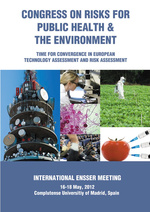Conference 26th June 2024: Farming without harming: policy action for resilient agriculture
Hosted by Pesticide Action Network Europe, Friends of the Earth Europe, The European Network of Scientists for Social and Environmental Responsibility and Agroecology Europe Where: Multiburo EU Parliament (Square de Meeûs 38-40, 1000 Brussels) and Online When: 26th June 2024, 14:00-17:00 CET Language: English Registration: https://docs.google.com/forms/d/1rFGe8L87VzEXm0AcX7k1wFo9ry95Kym_t5JcVOIBnwk/viewform?edit_requested=true Pesticide Action Network Europe, Friends …

